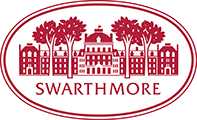Here’s an interesting story from the intersection of social networking, a non-profit cultural heritage project, and fundraising.
The project originated with a non-profit charitable organization called Musopen! It’s founder, Aaron Dunn, had a crazy notion: to raise enough money to commission a professional symphony orchestra to record performances of major works of classical music. And then give them away to the world, for free, forever.
Dunn requested bids from a number of orchestras, and compiled the costs of hiring studio engineers and venues. And then he asked for money. He posted a proposal on a social networking site called Kickstarter, which allows small donors an easy way to contribute small dollar amounts toward arts and culture projects of their choice. In exchange, donors receive a little inspiration, an acknowledgement from the project creator, or a small token (a copy of a CD, a photograph, etc.) of the work that they helped to produce. The one catch is that no money changes hands unless the project meets its fundraising goal.
The original project required $11,000 to get off the ground, which would allow Musopen to record and release the rights to Beehtoven, Brahms, Sibelius, and Tchaikovsky symphonies. The project caught fire, and when the Kickstarter campaign closed after a month of collecting pledges, the project had collected $68,359 from 1276 users.
The excess funds will allow Musopen to hire a top orchestra, and expand the catalog of works to record and release. Dunn is surveying the 1276 backers for input about which works to pursue with the windfall.
The project is interesting for several reasons:
- Musopen is a useful cultural heritage resource, providing sheet music and existing public domain sound recordings for classical music. The recordings available through Musopen are useful in a wide range of cultural contexts [ed. including my interest–filmmaking and digital storytelling].
- Kickstarter demonstrates the tremendous power of the Internet, and social networking in particular, to connect people with shared interests or social concerns to organize their efforts.
About Musopen
Dunn describes the rationale for Musopen’s fundraising campaign:
“Musopen is a non-profit dedicated to providing copyright free music content: music recordings, sheet music and a music textbook. This project will use your donations to purchase and release music to the public domain. Right now, if you were to buy a CD of Beethoven’s 9th symphony, you would not be legally allowed to do anything but listen to it. You wouldn’t be able to share it, upload it, or use it as a soundtrack to your indie film- yet Beethoven has been dead for 183 years and his music is no longer copyrighted. There is a lifetime of music out there, legally in the public domain, but it has yet to be recorded and released to the public.”
More information about Musopen is available on the project’s website: http://www.musopen.com/
About Kickstarter
Kickstarter describes itself this way:
“Kickstarter is a funding platform for creative projects. We’re a great way for artists, filmmakers, musicians, designers, writers, illustrators, explorers, curators, promoters, performers, and others to bring their projects and ambitions to life. Project creators inspire people to open their wallets by offering products, benefits, and fun experiences.”
